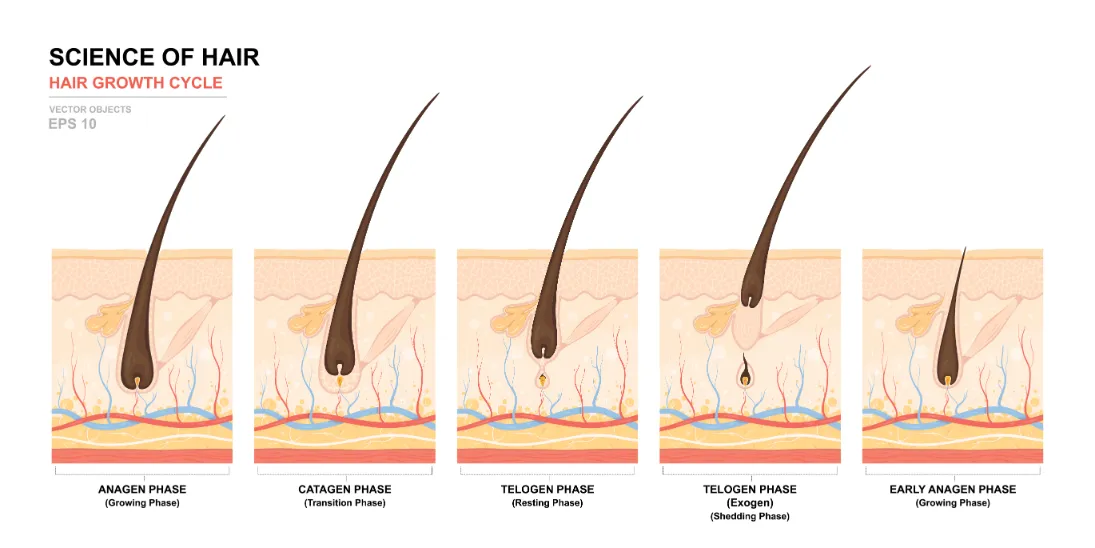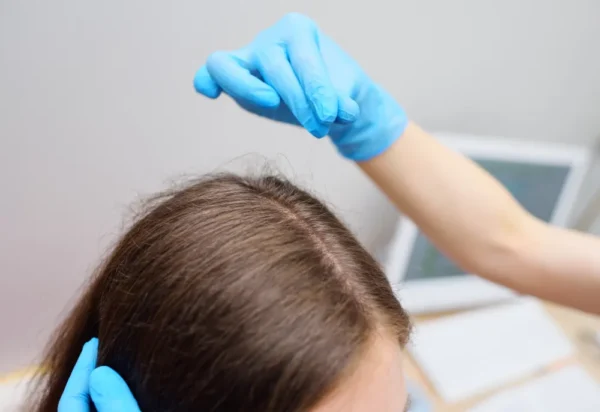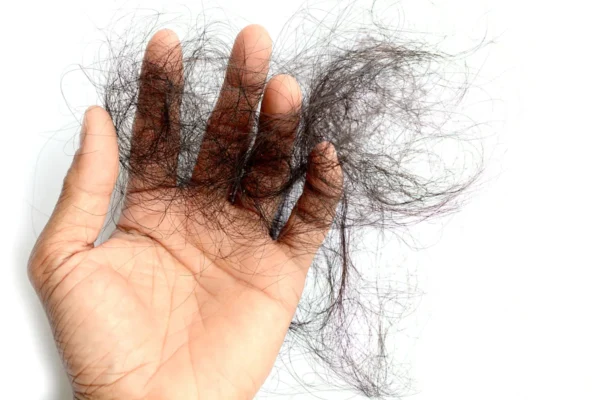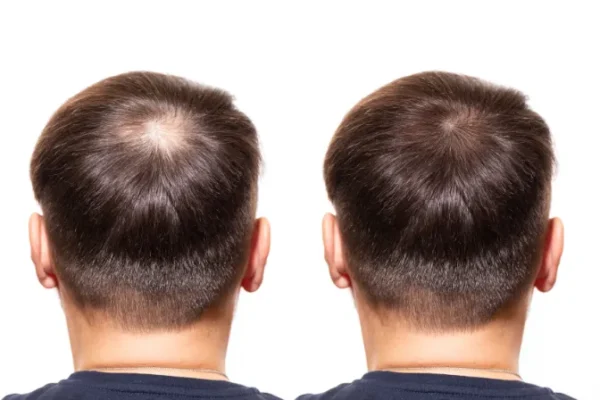Elite Hair Centers
We know that choosing a hair restoration provider is an important decision. At Elite Hair Centers, our unique dermatology and plastic surgery team is dedicated to delivering exceptional results with expertise and passion. This is what sets us apart from the competition.
Telogen Effluvium
Telogen effluvium (TE) is a type of diffuse, non-scarring hair loss that occurs when hair follicles shift from the anagen (growth) phase to the telogen (resting) phase, resulting in visible shedding or thinning. TE is primarily divided into acute and chronic forms. Acute TE usually develops within 2-3 months after a triggering event and reverses once the trigger is eliminated, with hair regrowth returning in 6-12 months. Chronic TE, on the other hand, persists for over 6 months and may involve recurring hair loss episodes.
Numerous factors can trigger telogen effluvium, including medications, acute or chronic illnesses, childbirth, rapid weight loss, nutritional deficiencies, thyroid disease, infections, inflammatory scalp conditions, and emotional stress. However, sometimes a specific trigger cannot be pinpointed.
- Medications, supplements, or toxins (such as heavy metals) can cause TE. Common examples include oral contraceptives, anticoagulants (heparin and warfarin), antifungals, antiseizure medications, hormones (OCPs, hormone replacement), interferon, psychotropics, retinoids (isotretinoin and acitretin), and more.
- Acute or chronic illness, fever, major surgery, systemic rheumatologic disease, and malignancies are also known triggers. Fever can cause TE because high metabolic rates during fever can negatively affect hair growth.
- Childbirth-related TE occurs when the prolonged anagen state, caused by higher estrogen levels during pregnancy, shifts to the telogen phase after delivery. Hair loss may become more noticeable 1 to 4 months post-delivery and last for several months, with full recovery taking 4 to 12 months.
- Nutritional changes, such as rapid weight loss, protein or calorie restriction (< 1000 kCal/day), iron deficiency anemia, zinc deficiency, and vitamin D deficiency can also trigger TE.
- Thyroid disease, including both hypothyroidism and hyperthyroidism, may cause TE. In some cases, diffuse hair loss might be the earliest and sole indication of thyroid dysfunction. Other endocrine disorders can also trigger TE.
- Scalp conditions, such as persistent inflammation from infections (fungal, bacterial, or viral) or inflammatory conditions like seborrheic dermatitis or psoriasis, may also lead to TE.
- Finally, emotional stress, acute anxiety, and depression can act as triggers.
Patients with telogen effluvium typically report increased hair shedding, with the percentage of hairs in the telogen phase rising from 10% to 30-40%. However, this will not progress to complete baldness. Hair loss is generally diffuse across the scalp but may be most noticeable in certain areas, especially in those with underlying androgenetic alopecia. A positive hair pull test (> 5 telogen hairs per pull) from various scalp areas supports the diagnosis.
Identifying a physiological or psychological stressor often leads to diagnosis. If a clear cause is not found, blood tests, including complete blood count, complete metabolic panel, thyroid studies, ferritin, and 25-hydroxyvitamin D, may be necessary, along with additional tests based on the patient’s history.
If the hair loss cause is identified and eliminated or treated, hair loss should resolve, and regrowth should occur within 6 to 12 months. Some physicians may supplement with iron to achieve a ferritin level greater than 70 mcg/L (even in the absence of iron deficiency anemia), though this approach is controversial. Topical and oral minoxidil can also help in cases of chronic TE.



TESTIMONIALS

Before & After Gallery
*Individual results may vary.

